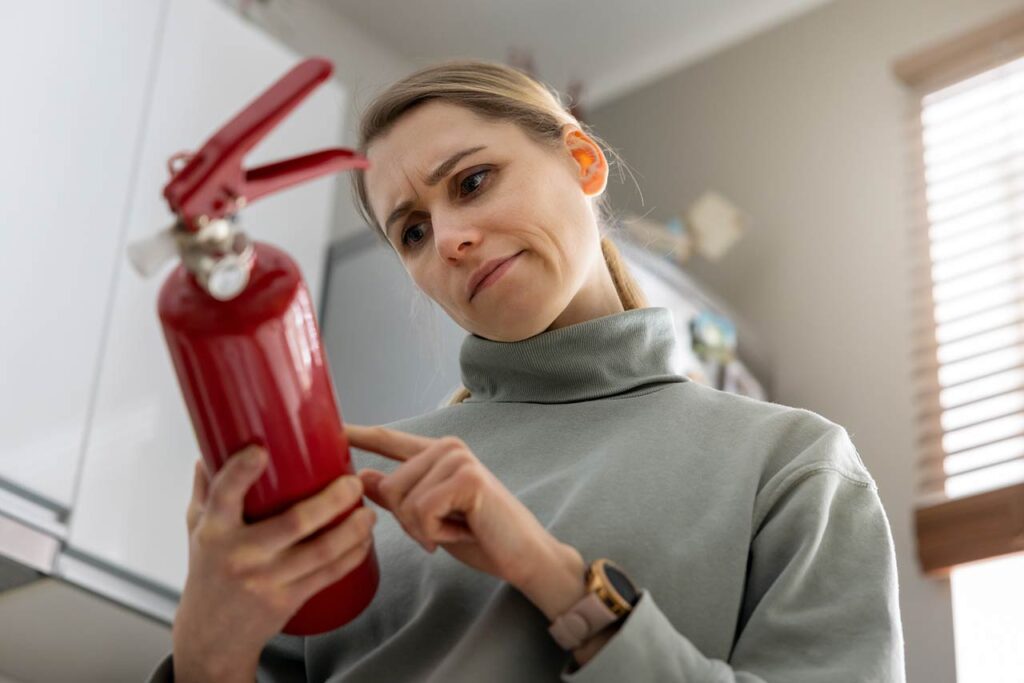Emergency Tips Every Homeowner Needs to Know About

Owning and maintaining a home doesn’t come with an instruction manual, though it would be great if it did. After you’ve found the home you love and moved in, the real fun starts.
But sometimes the fun can be rudely interrupted by certain scenarios that can put the home – and even you and your family – at risk.
Here are a few things all homeowners should know about in order to avert an emergency in the house.
Know Where the Shut-Off Valve is
Whether the toilet is overflowing, or the pipes are frozen, the water supply to the house needs to be shut off immediately. You should probably shut the water off completely if you’re going on vacation for more than a couple of days.
You’ll need to know exactly where the shut-off valve is in order for you to cut off the water supply. While it may typically be in the basement, it can also be located in an underground utility box or outside wall in warmer climates.
Once you’ve located it, make sure that it works properly. It should be turned clockwise to stop the water flow into the house. A good idea would be to test it two or three times after you first move into the home to make sure it actually works.
In the case of a burst pipe either under a sink or beside the toilet, you should first shut the valve off directly at these sites to minimize damage in those immediate areas.
Know How to Stop an Overflowing Toilet
Aside from this being pretty nasty, an overflowing toilet can cause serious water damage to the immediate surroundings and the structures below. Usually these scenarios happen when the bowl is slow to drain and clean water from the tank rushes in too fast.
If the bowl is filling up, don’t run away. Instead, immediately lift the top of the tank, grab the black rubber float, and pull it up. This will close the valve that allow the clean water in the bowl, which should ideally give you enough time to shut the water source off.
Label Your Circuit Breakers
You’ll definitely need to fiddle with the breakers on occasion. As such, it’ll be a lot more helpful if you know exactly which breakers work specific outlets, light fixtures, electronics, and appliances.
First of all, you need to know exactly where your breaker box is. Once you’ve found it (usually in some sort of utility space like the laundry room or storage room), label the breakers accordingly. You’re probably going to need some help in this department, so make sure you’ve got your partner or a pal to help identify what fixtures each breaker controls.
Start by turning them all off, then test each one at a time. Once you’ve got this info, write it down directly beside each switch. Be sure to identify where the main switch is too, which shuts off the power to the entire house.
Know How to Operate a Fire Extinguisher
Many times a house fire can be stopped right in its tracks with the use of a fire extinguisher. Just make sure your home is equipped with one.
To effectively operate this life-saving piece of equipment, it might help to write down clear, simple instructions on the actual canister. The first thing you need to do is pull the pin for it to be ready. After you aim the nozzle at the fire, squeeze the trigger and spray the agent from side to side to extinguish the fire.
Remember that the average fire extinguisher only consists of approximately 8 seconds of fire-squelching agent in it, so use this tool wisely.
Keep an Emergency Kit Handy in the Home
Certain emergencies may force you to remain in your home for a long time – perhaps even days. And many times the conditions aren’t exactly comfortable or safe. Perhaps your area has been caught in a massive snowstorm that has blocked you in and knocked the power out. Or perhaps your home is the victim of destruction from a hurricane or earthquake.
Whatever the situation is, you should be prepared for anything and everything, and that means having a disaster kit readily available. Consider adding the following items to this kit:
- Water (about one gallon of water per person per day for a week)
- Food (non-perishable)
- Radio
- Flashlight
- Batteries
- First-aid kit
- Blankets
- Whistle to signal for help
- Cell phone with power banks for charging
If it’s within your budget, you may even consider buying a generator that will be able to power up some of the more necessary appliances, like light fixtures, a stove, or space heaters.
You can never be over-prepared for an emergency. Taking the time and effort to prepare your home before disaster strikes can save both the home itself, and your family.